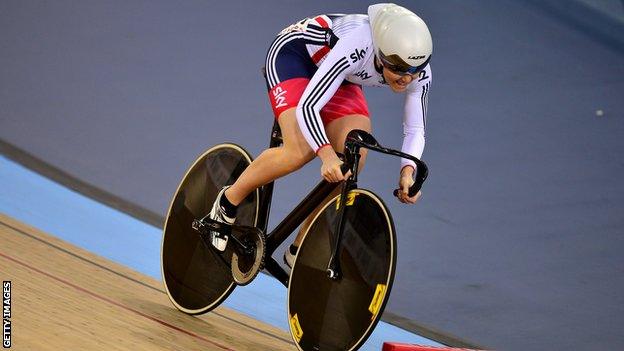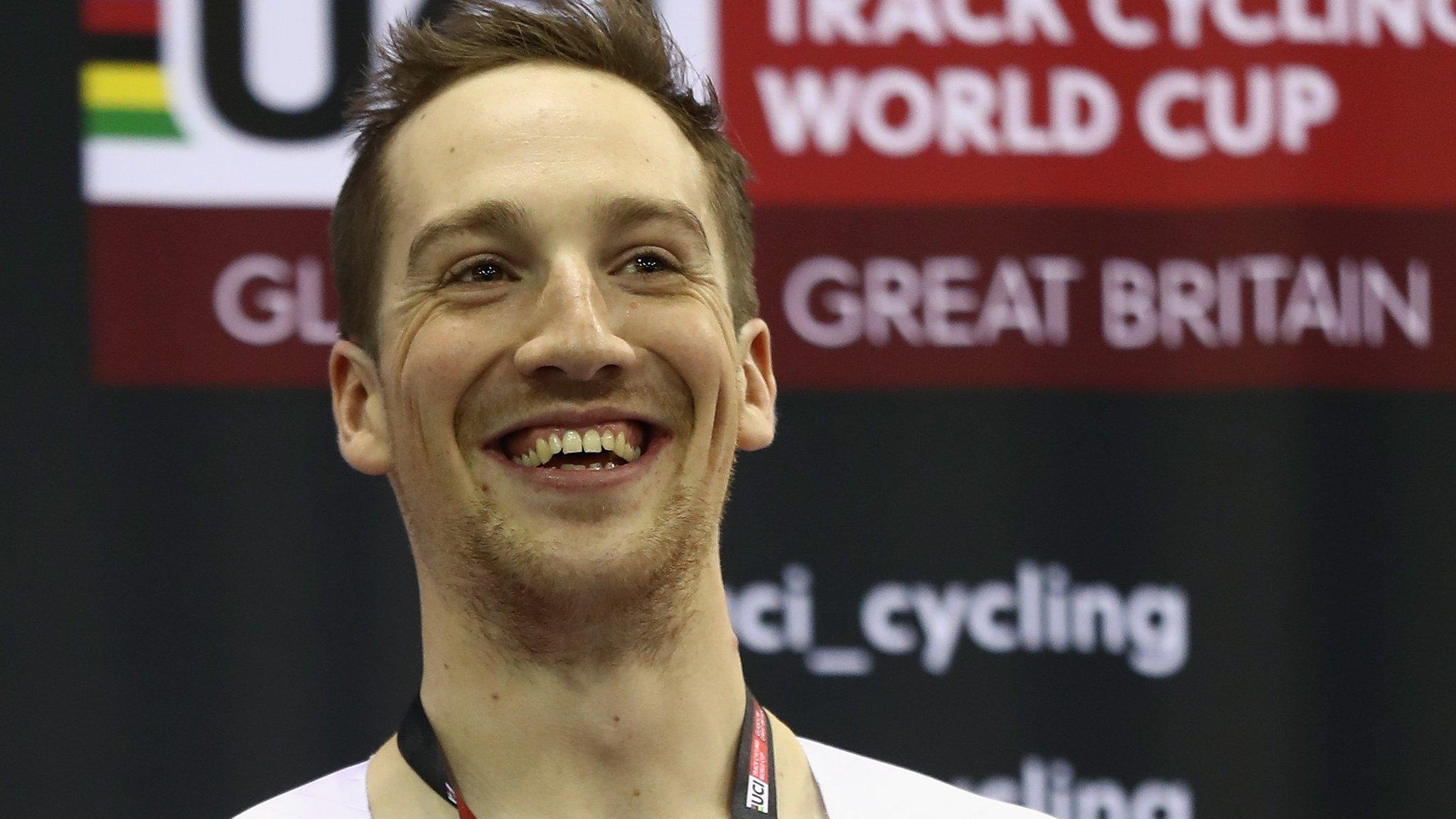British Cycling's new 'people director' says body would never sacrifice medals
- Published

British Cycling launched an independent review following sexism allegations by cyclist Jess Varnish in April last year
British Cycling's new 'people director' says the body would "never sacrifice medals for athlete welfare" because its recent success "makes Britain proud".
British riders have won 42 Olympic medals since 2004 - 24 of them gold.
But several high-profile athletes have recently made allegations of bullying, which British Cycling denies, with an "explosive" report set to be published.
"The culture is high performance and challenge. Our athletes do not want to finish second," Michael Chivers said.
"They don't want to be second best so we need to keep that high challenge," he added on BBC Radio 5 live.
"If we can create a high-support environment... we can actually be more successful going forward. But no, we can never sacrifice the success. This makes Britain proud."
The most recent athlete to come forward was ex-rider Wendy Houvenaghel, who said a "medal at any cost" approach created a "culture of fear" at British Cycling.
Jess Varnish first spoke about her experience within British Cycling after she was dropped from the elite programme last April.
She claimed former technical director Shane Sutton used sexist language towards her, and the Australian, who quit in the wake of the allegations, was found to have used the word "bitches" when describing female riders.
Jess Varnish talks to Dan Roan
In January, Nicole Cooke told MPs British Cycling was run "by men for men" and its attempts to stop doping were "ineffective".
And in March, Emma Pooley criticised former boss Sir Dave Brailsford's leadership, saying "a fish rots from the head".
British Cycling is also under investigation by UK anti-doping over allegations of wrongdoing in the sport.
New human resources boss Chivers has been working for the body as a consultant since November.
In his new role he will bring in "behaviours" workshops and seek to to raise management standards within the organisation.
"I am so impressed with what this place has achieved but sad about where we are at the moment," said Chivers, following his appointment on Thursday.
"We have been very good at high performance but where we have not been so good is high support. Getting that balance right is key."
- Published10 March 2017

- Published1 February 2017
- Published3 April 2017
